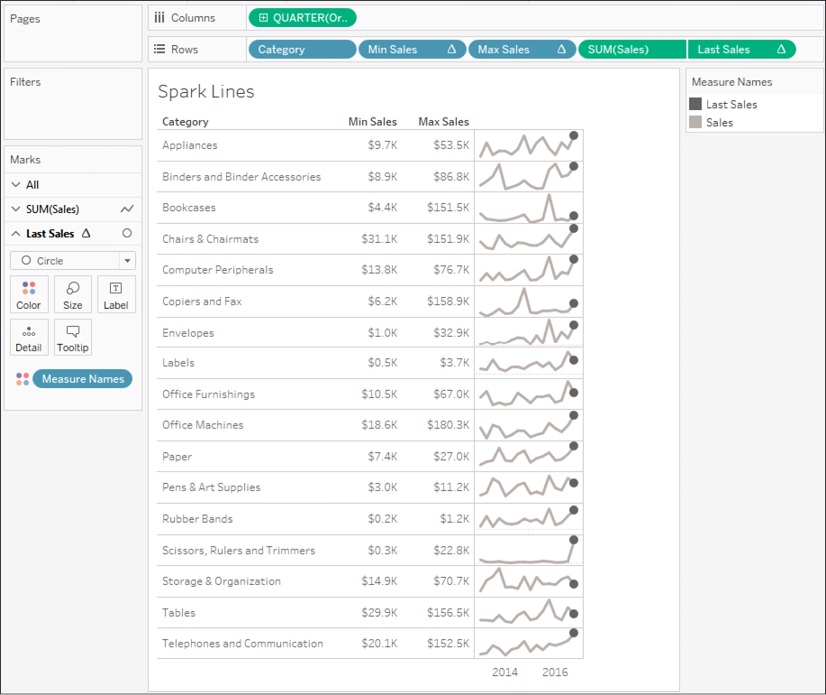Sparklines
Sparklines are visualizations that use multiple small line graphs that are designed to be read and compared quickly. The goal of sparklines is to give a visualization that can be understood at a glance. You aren't trying to communicate exact values, but rather give the audience the ability to quickly understand trends, movements, and patterns.
Among various uses of this type of visualization, you may have seen sparklines used in financial publications to compare the movement of stock prices. Recall, that in Chapter 1, Taking Off with Tableau, we considered the initial start of a Sparklines visualization as we looked at iterations of line charts. Here is a far more developed example:

Figure 10.6: Spark Lines give you a quick glance at the "shape" of change over time across multiple categories
You can build a chart like this by following these steps:
- Start with a simple view of SUM(Sales) by Quarter of Order Date (as a date...
























































